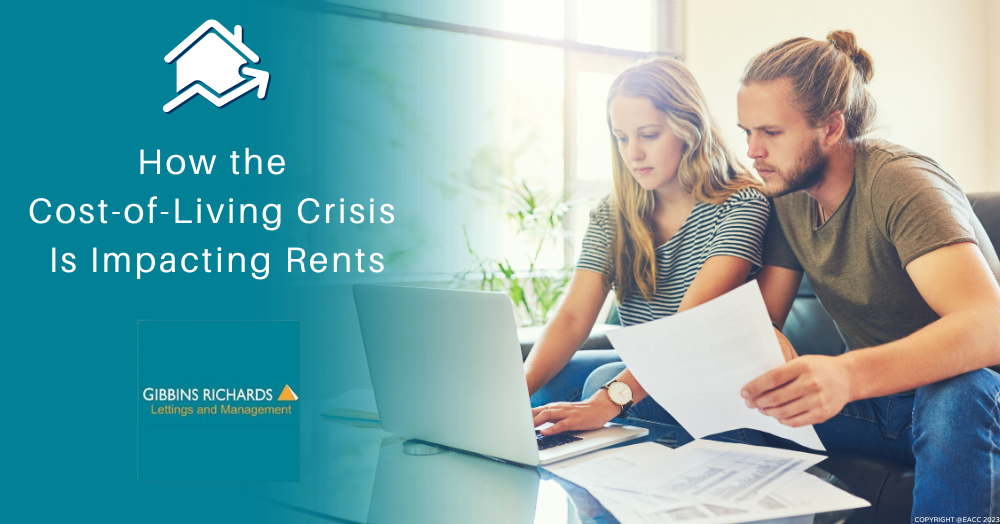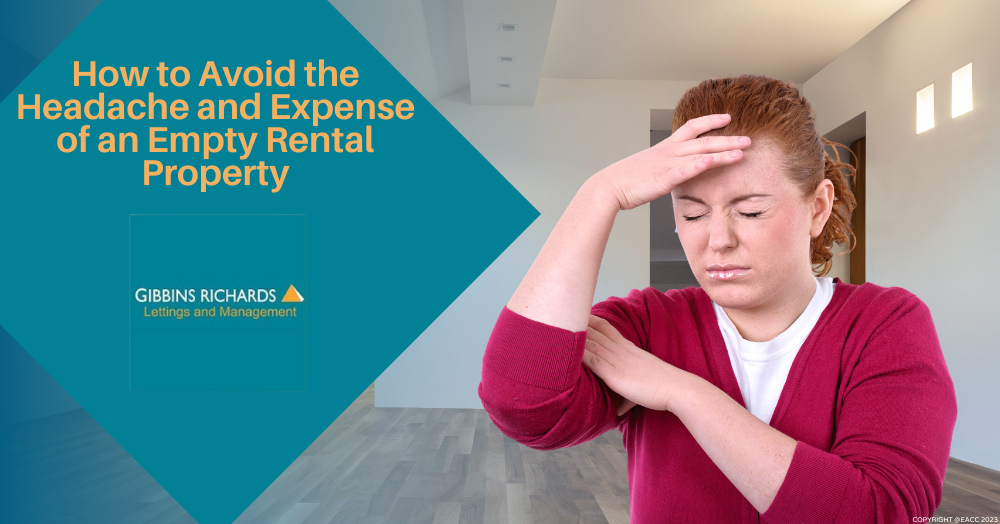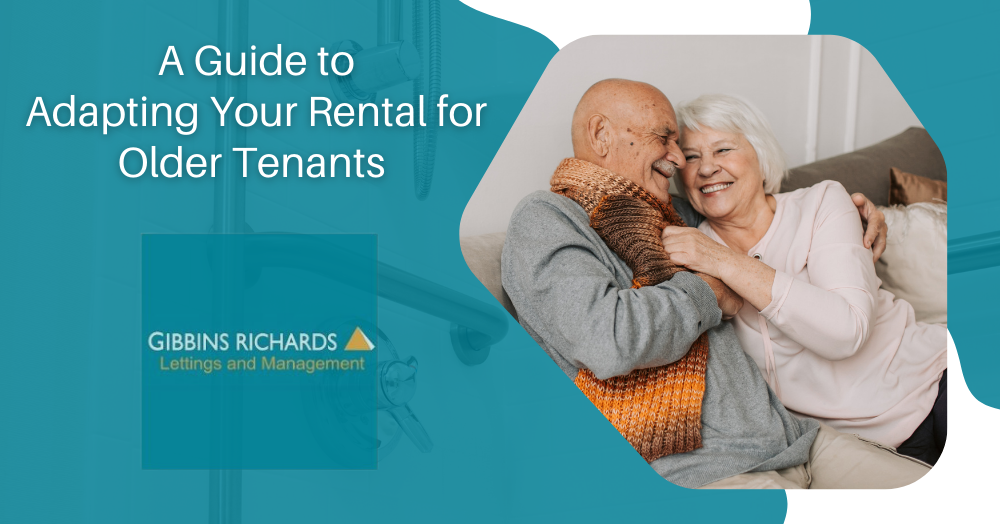Blog
- Details
- Hits: 444
How the Cost-of-Living Crisis Is Impacting Rents
You can’t open a newspaper (or app) without seeing something about the UK rental market. Whether it’s the increase in demand for property, changes to rent rules or landlords selling up – rentals are getting a lot of attention.
And one matter that is causing a lot of controversy is the issue of rising rent. In a cost-of-living crisis, the increase in monthly rent is understandably worrisome for tenants, but are landlords really to blame?
Owning investment property is a business, and for many full-time landlords, it’s their sole source of income. The same applies to one-off or accidental landlords, and with the economy in flux, price changes are inevitable.
In this two-minute read, we explore three reasons rents are going up and why landlords aren’t just profiting off a volatile rental market.
Mortgage rates
As interest rates go up, the mortgage market goes the same way. And just as residential mortgages get more expensive, so do buy-to-let mortgages. Landlords are facing the same issues as residential owners – their monthly payments have increased.
While many people think that owning a rental is an easy way to rake in cash, it’s a business model that only creates profit if the rental income covers the mortgage payment and there’s money left over. If mortgage payments are going up, then rising rents may reflect a landlord’s increase in costs.
Changes to tax rules
Without getting into the nitty gritty of UK tax law, over the last few years, there have been lots of changes introduced which impact landlords. This includes the amount they can claim in expenses and how much tax they pay. These changes have not only caused many landlords to sell their rental properties but may have also forced rent increases to meet financial obligations.
Increased costs of repairs and maintenance
Landlords often pay for the upkeep of their properties through their rental income, and the following issues could be affecting the rent they charge:
A general increase in the cost of labour and materials, fixtures and furnishings.
With purpose-built flats, owners often have to pay service charges or ground rents to the freeholder, many of which have increased due to the rising energy costs. Communal heating, lighting and refuse collection will currently be more expensive.
In the next few years, all rental properties must meet an increased level of energy efficiency, so many landlords will have to undertake major works, which again, could impact rent.
If you’re a landlord looking to rent out a property or a tenant looking for a new home, contact Gibbins Richards Lettings and Management Ltd. Our lettings team is ready to help.
- Details
- Hits: 456
How Landlords Can Manage and Minimise Void Periods
Success as a landlord doesn’t just centre around what you do when your property is tenanted. How you manage your rental when it’s empty is also crucial.
All landlords have to contend with void periods – they’re an inevitable part of having a buy-to-let.
So, it’s wise to budget for the costs associated with void periods and take precautions to stop them dragging on.
That’s because when your property is empty, not only will you be missing out on rent, you’ll also have to cover the mortgage and utility bills (you’ll need to heat your property to some degree to prevent the pipes from freezing and condensation). And then there’s the thorny issue of council tax.
A few years ago, many local authorities gave landlords a one-month grace period on paying council tax on empty properties. But many cash-strapped councils have since scrapped this policy, while others only offer a partial discount.
Given that void periods can be costly, it’s imperative that landlords carefully manage them and keep them to a minimum. Here are tips on how to do both.
Managing void periods
- Set some cash aside to cover costs when your property is empty.
- Check the rules on council tax and vacant properties in your local area so you can budget.
- When your tenant serves notice, use this time wisely to carry out any improvement works.
- Include rent protection in your landlord insurance.
- Check your insurance cover; some policies become invalid if the property is empty for more than 30 days. If your property looks set to be vacant for a significant period, you may need to take out unoccupied property insurance.
How to prevent unnecessarily lengthy void periods
- Be aware that it might take longer to find good tenants if your property is vacant around the Christmas period, as it’s quiet and difficult to arrange viewings.
- Maintain your buy-to-let to a high standard all year round. Don’t put off maintenance or repair work.
- Be a responsive landlord. Happy tenants are likely to stay longer.
- If you’re time-poor, use a letting agent to manage the property and reduce tenant turnover.
Contact us here at Gibbins Richards Lettings and Management Ltd to learn more about our property management services.
- Details
- Hits: 439
Ways to Avoid Deposit Disputes When You Leave Your Rental
It’s widely recognised that moving house is one of the most stressful (and annoying) life events you can experience.
If you’re nearing the end of a tenancy agreement, there are a few things you can do to ensure your check-out inspection goes well and (upon moving out) you get your tenancy deposit back in full.
In this quick read, we go through ways to make moving out easier for you and your landlord.
Report issues or breakages early
Let your landlord or managing agent know in advance of any damage that has occurred – whether it’s a broken appliance, damaged furniture or peeling wallpaper. If you give them a heads-up, it can be dealt with, and you can avoid blame.
Fix problems you’ve caused (if you can)
This applies to issues that can be sorted without needing building work or professional involvement, such as a stain on the carpet or a ripped shower curtain. If you have caused minor issues, get them fixed ahead of time, so you don’t need to worry come inspection time.
Clear out clutter
Once you’ve packed up all your essentials, there’s bound to be bits and pieces left over. Don’t be tempted to shove them in a cupboard and hide them away. It’s better to dispose of your personal debris than to leave it for someone else to find. Left-over rubbish could affect your deposit, and it’s good manners not to leave it behind.
Appliance cleaning
When you empty the fridge and freezer, give the shelves/drawers a quick wipe-down. The same applies to the hob and oven. The general cleanliness of the property will be noted in the inspection, so it’s good practice to leave everything as clean as possible. Similarly, give the drains in your bathroom sink, shower and kitchen a clean by removing any hair or blockages.
Outside areas
If your rental has outside space, you’ll need to give it a quick tidy, too. Make sure you’ve removed any rubbish, packed up your BBQ and any toys, and left it in the same condition as when you moved in. This includes getting rid of weeds.
If you’re looking for a new rental property, get in touch with the Gibbins Richards Lettings and Management Ltd letting team today.
- Details
- Hits: 481
Four Ways to Reduce the Stress of Being a Landlord
Being a landlord is one of those jobs where there’s no middle ground. It’s either low stress with great tenants and affordable mortgage rates, or it’s the total opposite: high stress, broken appliances, tenancy challenges and ever-increasing costs.
When a property is vacant, there’s worry about how long it will take to find new residents. When new tenants move in, there’s the stress of managing the rent payments, and then there’s the constant anxiety about a boiler breakdown or major leak.
As April is Stress Awareness Month, there’s no better time to look at a few ways you can reduce the stress of being a landlord. Read on for stress-busting tips.
Get a good agent
The first way to relieve some of that landlord anxiety is to find an agent that knows the local market, has a strong portfolio of rental properties in the area, and is confident in finding and dealing with tenants. Whether you manage the property yourself or hire the agent to manage it, there’s a lot to be said for working with agents you can trust and who can take away some of the burdens of being a landlord.
Check all appliances
As a landlord, you’re responsible for any white goods in the property, such as the washing machine, refrigerator and freezer, so it’s important to make sure they’re all in good working order prior to a tenancy starting.
In addition, it’s worth doing a quick recce of all the rooms to see if there are any glaring problems. Make sure the taps aren’t leaking, the loo flushes and the wardrobe doors aren’t falling off. That way, there’s less for people to complain about once they move in.
TOP TIP: Set an annual calendar reminder for things like a boiler service, smoke alarm check, carbon monoxide monitor check and so on. These are legal duties, so get on top of them.
Do your numbers
Despite the rental market being on the up, it’s important to know how much you’re getting every month and to prepare for any unexpected costs. Make sure you know what your monthly mortgage payment is, how much the agent will be taking (monthly or one-off), and costs such as service charges, boiler service plans, insurance payments and so on. This makes your end-of-year tax responsibility easier (which, let’s face it, is always stressful), and helps you in the event of any financial emergencies.
Pay for a professional clean
At the very start of your landlord journey, pay for a professional clean. You might think this is an unnecessary expense, but it means the tenant moves into a property that’s spotless – which sets expectations in a subtle way. So, you can put your marigolds away and enjoy a stress-free move-in.
If you’re looking for a letting agent, Gibbins Richards Lettings and Management Ltd is ready to help. Contact us today so we can talk you through the way we work.
- Details
- Hits: 474
A Guide to Adapting Your Rental for Older Tenants
Older tenants are a growing force in the private rental sector, so is it time for savvy landlords to proactively target this demographic?
It’s one of the most striking trends in the housing sector over the past decade.
Between 2011 and 2021, the number of tenants aged between 45 and 64 skyrocketed by 70%, while those over 65 jumped by 38%.*
A third of renters are now over 45. And due to high property prices and the challenges of getting a mortgage later in life, many in this group will stay renters their whole lives.
What does this mean for landlords?
Many landlords focus their efforts on attracting tenants who are young professionals. But do older tenants pose an even better prospect?
When they put down roots, older tenants usually stay put for longer. And they also tend to be respectful of the neighbours and lead quieter lives (hence less wear and tear on a property).
Targeting older renters. Some tenants, especially those over 65, may have specific housing needs.
So, if you want to encourage an existing tenant to stay longer or market your property to an older demographic, it may be worth making a few minor adaptations (often these can be made while a tenant is in situ).
Depending on the nature of the changes, your local council may fund the works. However, these adaptations would need to be approved and signed off by your local authority first.
Here’s a list of some of the most common adaptations.
Threshold ramps – allow you to go from one room to another without navigating any messy joins or raised edges. A must if you use a walking frame or wheelchair.
Grab rails – for assistance getting in and out of the shower and up and down stairs.
Lever handles – many older people have reduced dexterity and grip strength and find lever handles easier to use than standard doorknobs.
More significant adaptations. These could include:
A wet room – so it’s easy to walk or wheel into the shower.
Improved garden access – so tenants can enjoy the garden space independently.
Automatic door openers/closers – so a tenant can see who’s at the door and let visitors in without coming to the front door.
If you’re considering adapting your rental property to appeal to the older demographic, contact us at Gibbins Richards Lettings and Management Ltd for more tips and advice.
* Paragon Bank














